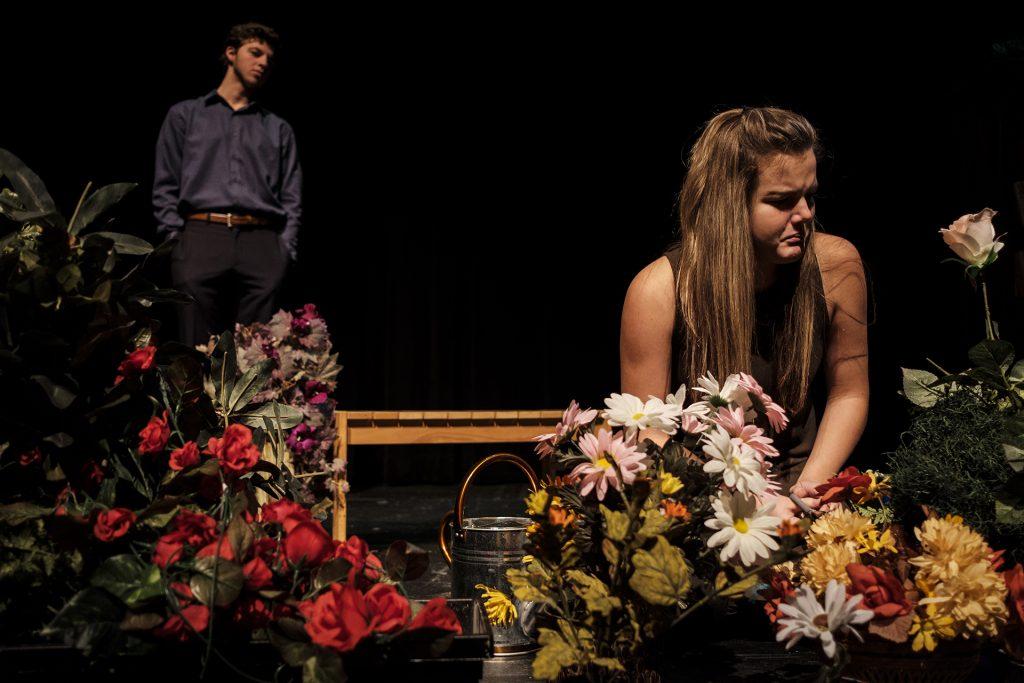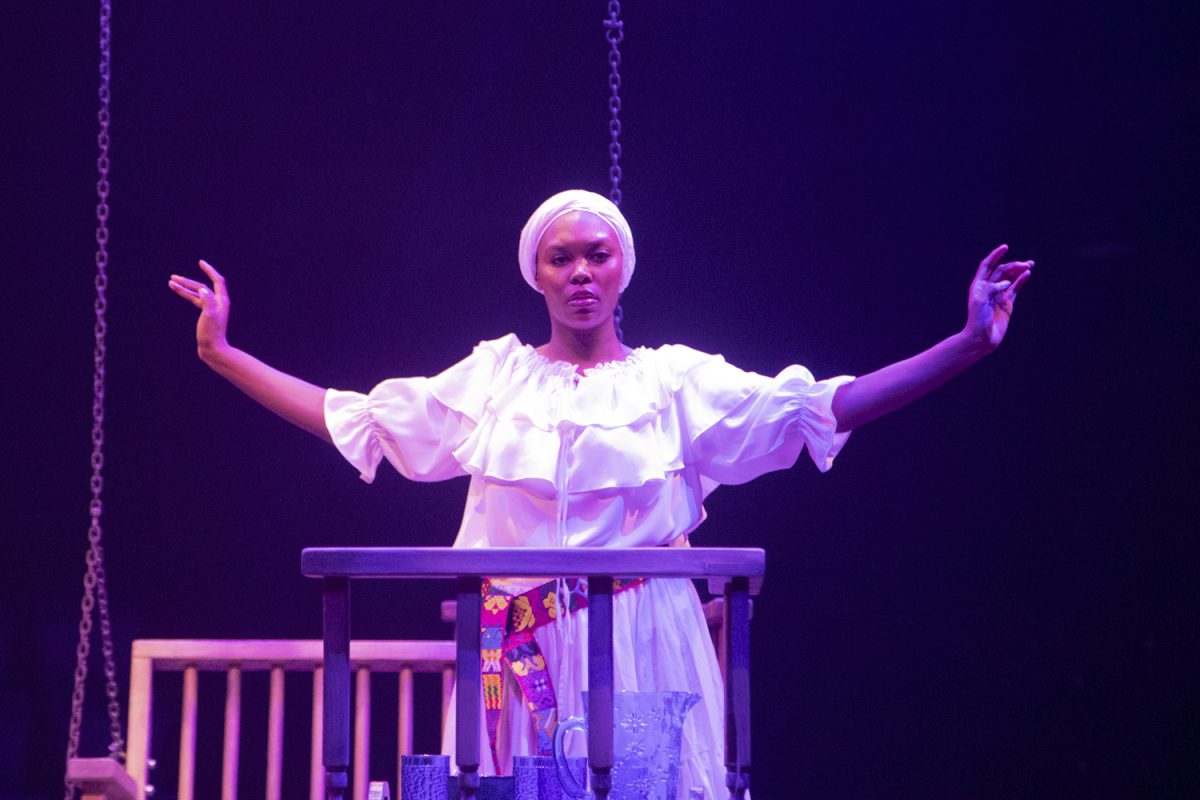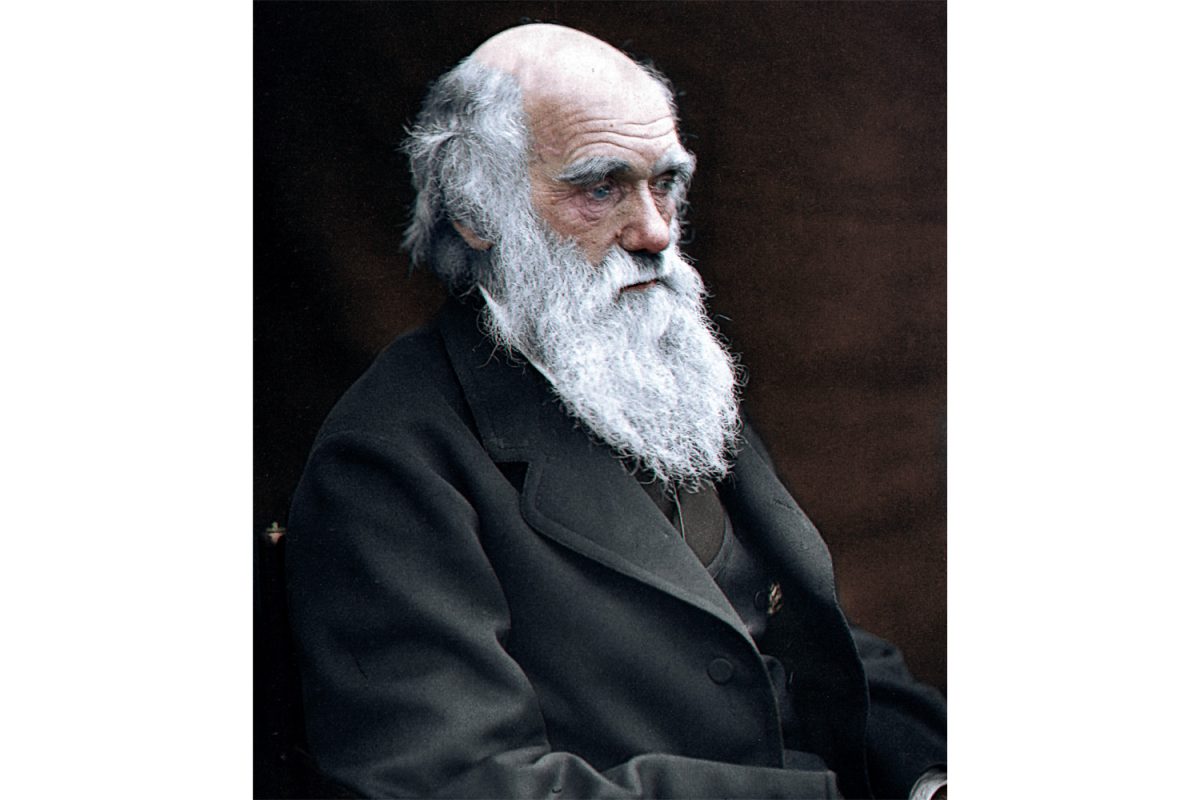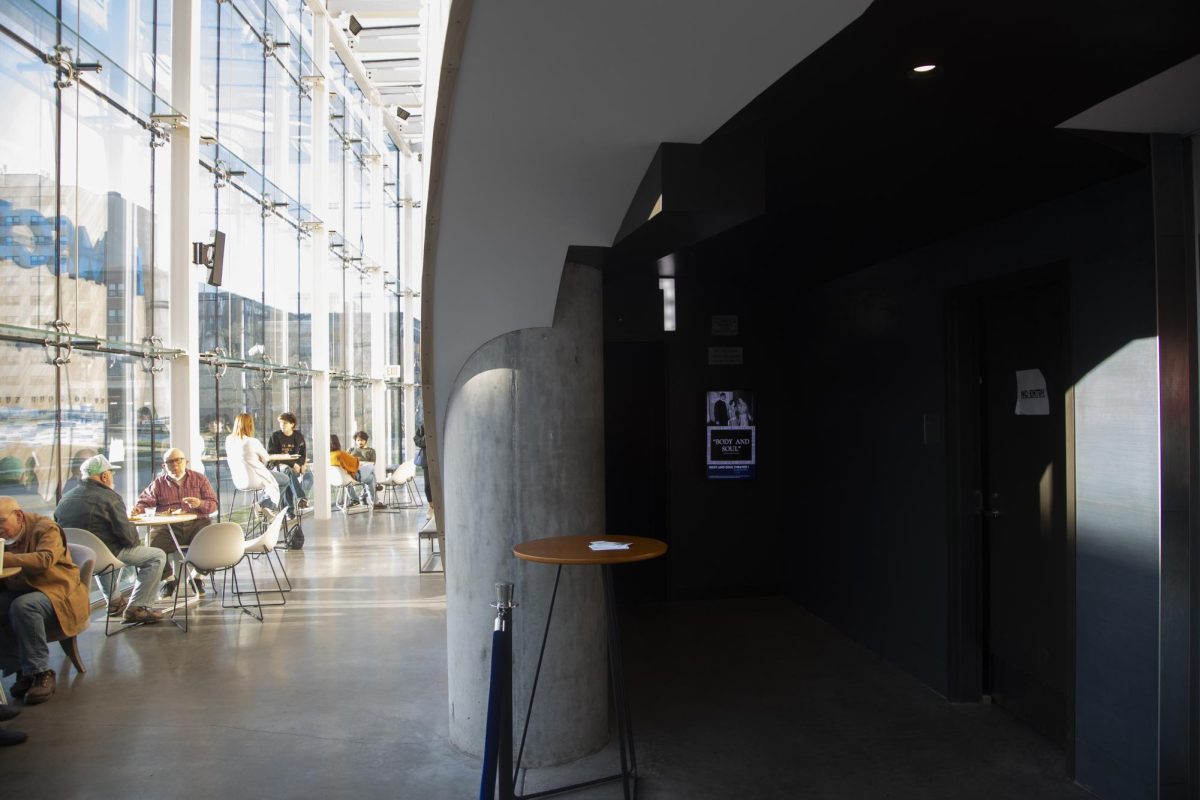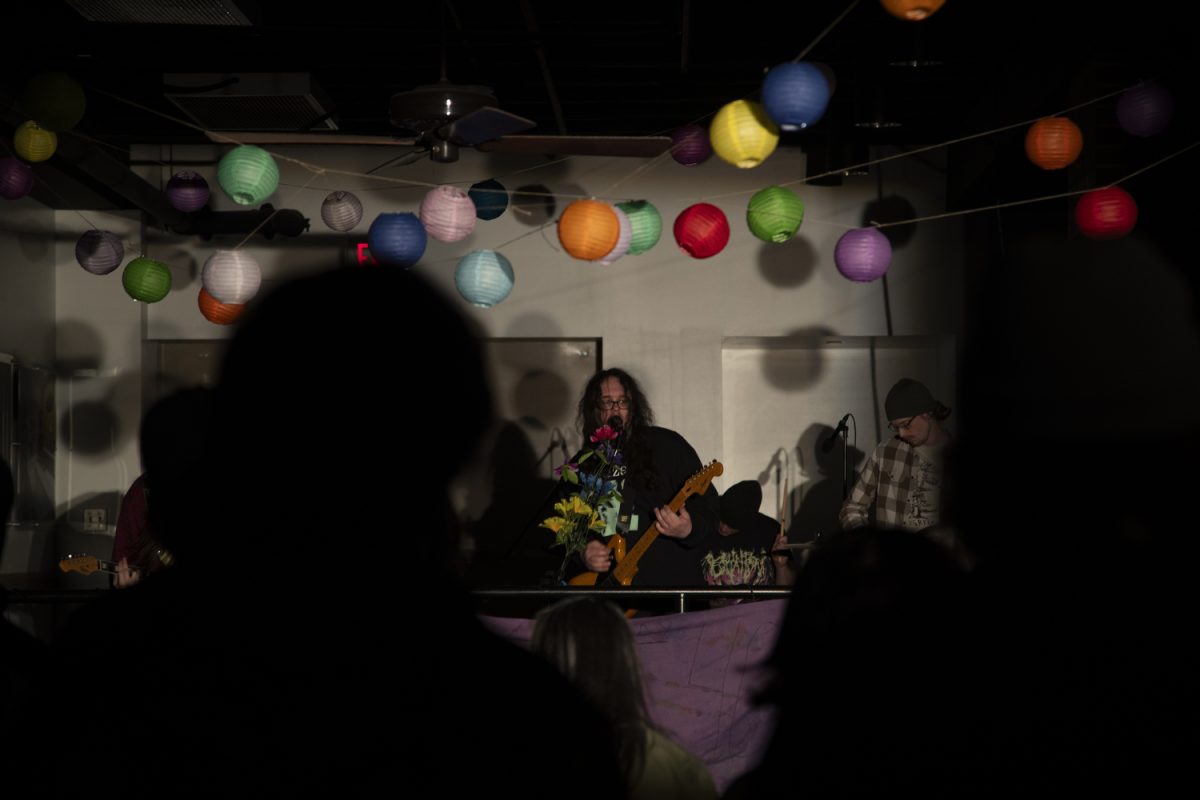Agnes in Green focuses on a transgender male who struggles with his parents bickering, has a crush on his best friend, and worries about how he will afford college.
By Madison Lotenschtein
[email protected]
A stage filled to the brim with potted plants and dark green grass. All other material objects are minimal, with only a barber’s chair planted on the side of the stage. A teenager with a mass of hair walks across the stage, and plops into a barber’s chair. A single light reflects off him.
Agnes in Green, an original Workshop Series production presented by the UI Theater Department, will début at 8 p.m. Friday in Theater Building Theater B. Agnes, an adolescent transgender man, is caught between the two raging storms that are his parents while he struggles with the fog clouding his head.
Coming from a poor, working-class family, Agnes worries how he will reach his educational destination. After coming across a major photography scholarship, Agnes’s mind sparks ideas that ignite his creativity. What if, he took a photo of every person in town, and ask them what life means to them? What brings them happiness?
However, he becomes — at times — sidetracked with his parents’ bickering and his secret love for his best friend, Emelia. Agnes’s father and mother promised they would move to a city once their child had sprouted into adulthood. The mother goes back on her word and wishes to stay with her garden in the sleepy little town to become entirely self-sufficient. The young main character is continually being swept into the firefight while wishing to remain neutral.
“This play isn’t solely about a transgender boy, it is about the struggles of a teenager and how he copes with his given circumstances,” said Ashlynn Dale, who plays Agnes. “I think this play can resonate with anyone, no matter their gender, because it tackles real problems that people will potentially face in their lifetime.”
For Dale, the play encompasses a wide variety of themes encountered in everyday life and the process of accepting neself.
“To me, this play is about love, friendship, and hardships in one’s daily life,” Dale said. “It’s about learning how to understand yourself, and the others around you, and deciding how to best-handle and appreciate the life that you were given.”
As the audience members are moved through scenes of the play, they are shown scenes embodying themes of mental illness, selfishness, and people trying to fix problems of those they have grown close to. The plot zooms in on how the characters interact with one another. Characters argue, have awkward conversations, show their love for each other, and make good, or terrible, decisions.
“It’s a hyper-naturalist play,” said Elin Dejus, the playwright. “These people that we see on stage do bad things, but they aren’t bad people. They’re just trying to be happy.”
Some contemporary plays have moved toward producing realistic forms of ideas and struggles, while others try to separate themselves from reality as much as possible. Agnes is Green is not one of them.
The audience can then empathize with the circumstance and relate to their own ideas and past, or current, events in their lives. The hardships of characters reflect some of the universal struggles everyone has seen or endured.
“You have to live your life the best as you can with the cards that you’re dealt,” said Travis Siegel, who plays Agnes’s father, Abner.
Like most teenagers on the brink of so called “freedom,” Agnes struggles greatly with making decisions. His father sees this and “does the best he can with the situation he’s in,” Siegel said.
Worry and anxiety fill the teenager’s head. What if Emelia doesn’t feel the same way about him? What if he is unable to obtain the scholarship? What if he is unable to afford college, what will he do with his life then? Agnes becomes depressed and searches the depths of his mind and heart to try to find happiness.
For a majority of the play, Agnes is glued to the chair, his hair getting shorter and shorter as the scenes roll by. His hair being mowed down is symbolic in many ways — a radical change of hair can mean many things: an opportunity to present gender identity or having gone through the best, or worst, in life.
By the end of the show, he is taken out of the chair, with rewards and failures alike. The idea of such a play sprouted, aptly enough, from a song about a boy named Agnes who likes photography. Dejus wanted to write something about reality, mental health, gender, and OK, but not brilliant, relationships.
“My hope is that people see it and see it as a reflection of real life,” Dejus said. “And while these characters’ problems and circumstances are unique to them, they are super-universal, and I think everyone can find snippets of themselves in these characters.”




